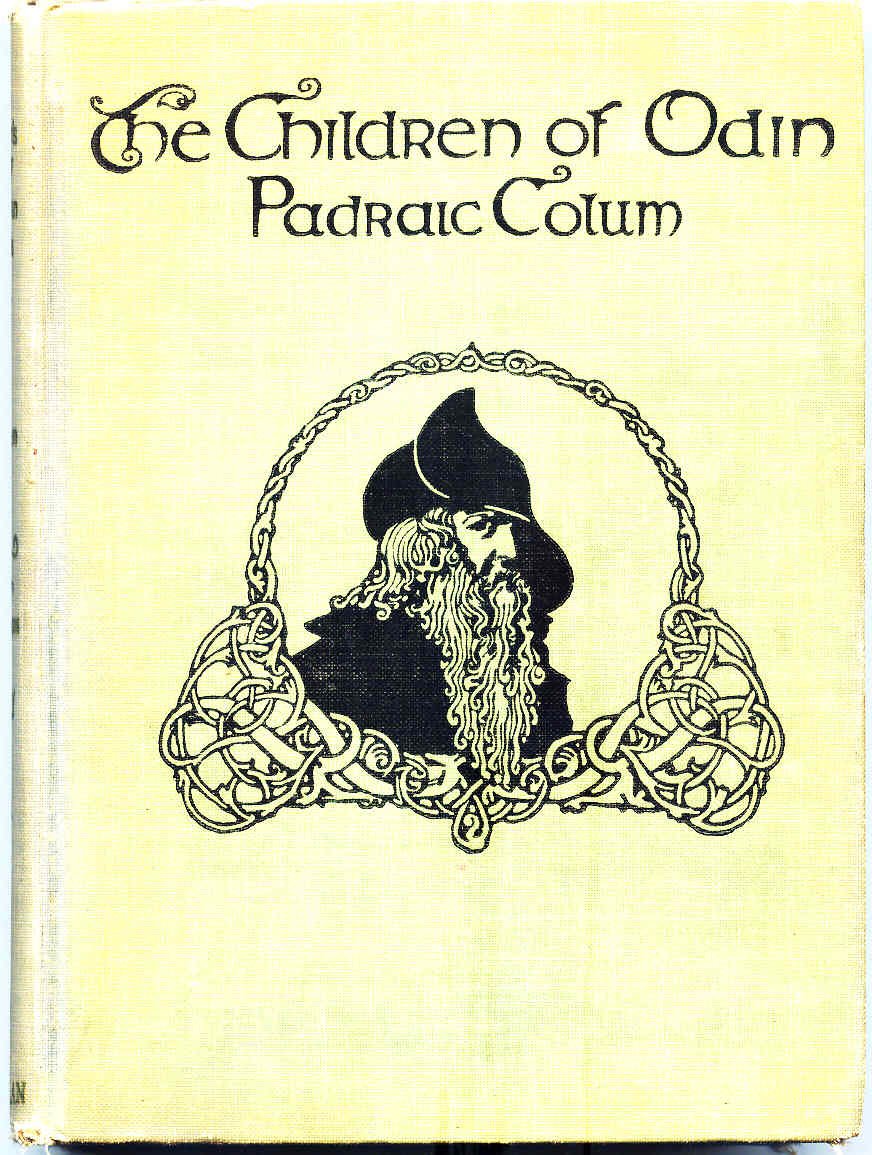Padraic Colum: Master of Myth and Legend
Padraic Colum. A revolutionary, a poet, a folklorist and a playwright. Also, one of the twentieth century’s great retellers of legends and myths from around the world.
The Poetry Foundation website provides an excellent short summary of Colum's life:
Born Patrick Collumb in Longford, Ireland, poet, editor, children’s writer, folklorist, and playwright Padraic Colum was the oldest of eight siblings. At 17, he took a job as a clerk for the Irish Railway Clearing House and began to write seriously; he had joined the Irish Republican Army and the Gaelic League and taken the name Padraic Colum by the time he was 20. Living in Dublin during the Celtic Revival and a member of both the National Theatre Society and the Abbey Theatre, he met and became close friends with writers James Joyce, W.B. Yeats, Lady Gregory, and George Russell. With James Stephens and Thomas MacDonagh, Colum founded the Irish Review.
Colum’s poetry uses traditional forms to weave landscape and legend with image and song. During his lifetime, Colum published more than 50 volumes of poetry, fiction, nonfiction, drama, children’s literature, and folklore. Early in his career, he wrote several plays, including The Land (1905) and Thomas Muskerry (1910), both of which were staged at the Abbey Theatre. In 1914, he moved to New York City and began to write for children. The King of Ireland’s Son (1916, illustrated by Willy Pogany) collects the serialized children’s stories, based on Irish folklore, Colum had published in the Sunday Tribune. In 1923, Colum traveled to Hawaii to record Polynesian folklore, which he published in At the Gateways of the Day (1924) and The Bright Islands (1925). In the 1930s, Colum and his wife moved to France, where he resumed his friendship with Joyce and transcribed sections of Finnegan’s Wake. In 1945, Colum returned to the United States and taught at Columbia University.
Padraic died upon this date, fifty years ago, in 1972.
I first encountered Colum's work by way of his classic retelling of the Argonautika, The Golden Fleece and the Heroes Who Lived Before Achilles, with illustrations by the great Willy Pogany.* I was immediately struck by Padraic's spare, elegant prose and his natural gift for storytelling. At the time, I didn't realize he had begun his career as an award-winning poet, but it's obvious enough in hindsight.
Here is a short excerpt, describing the scene where Chiron, the king-centaur, takes the baby Jason into his keeping:
Chiron came toward the trembling slave. Greater than any horse was Chiron, taller than any man. The hair of his head flowed back into his horse's mane, his great beard flowed over his horse's chest; in his man's hand he held a great spear.
Not swiftly he came, but the slave could see that in those great limbs of his there was speed like to the wind's. The slave fell upon his knees. And with eyes that were full of majesty and wisdom and limbs that were full of strength and speed, the king-centaur stood above him. "O my lord," the slave said, "I have come before thee sent by Æson, my master, who told me where to come and what blasts to blow upon the horn. And Æson, once King of Iolcus, bade me say to thee that if thou dost remember his ancient friendship with thee thou wilt, perchance, take this child and guard and foster him, and, as he grows, instruct him with thy wisdom."
From there, I began searching out his other retellings of ancient legends. I found The Children of Odin next. Once again, simply a classic of its kind. A simple, but elegant and well-wrought, retelling of the Norse myths.
Here is a short excerpt:
Then the ancient witch who lived in Jarnvid, the Iron Wood, fed the Wolf Managarm on unburied men and on the corpses of those who fell in battle. Mightily grew and flourished the Wolf that was to be the devourer of Mani, the Moon. The Champions in Valhalla would find their seats splashed with the blood that Managarm dashed from his jaws; this was a sign to the Gods that the time of the last battle was approaching.
I found The King of Ireland's Son in a used bookstore. It was a retelling of Irish folktales and the first such book Colum ever wrote, starting him down the road of his greatest success. While I still treasure my copy--one of the relatively few books that survived the Flood of 2012--I feel it is somewhat less successful than, say, The Children of Odin. That said, it notably has none other than Crom Dubh as one of its villains.
Other worthy retellings from Colum include The Island of the Mighty--a retelling of The Mabinogion--The Gateways of Dawn--a collection of Polynesian legends--and The Children's Homer, also known as The Adventures of Odysseus and the Tale of Troy.
All of these retellings are classified as "children's literature". This should not put you off. There is a craft and art in spinning a tale which can be read by all. Reading Colum, I was often reminded of Lord Dunsany and Manly Wade Wellman, both of whom possessed the gift of deceptively rich simplicity. To me, such plain-spoken but poetic prose evokes how stories were declaimed and chanted around ancient tale-fires better than most methods.
If nothing else, pass these books on to your sons or younger brothers. Set their feet upon the right path. All of us need a gateway into the realms of adventure, wisdom and wonder, especially those tales handed down to us which have withstood the test of centuries. An excellent sampler by Colum is his Orpheus: Myths of the World.
Padraic Colum was one of the last great Irish bards. Raise a mead-horn to his shade, sword-brothers!
*Colum and Pogany would collaborate artistically on several books. A classic combo.



